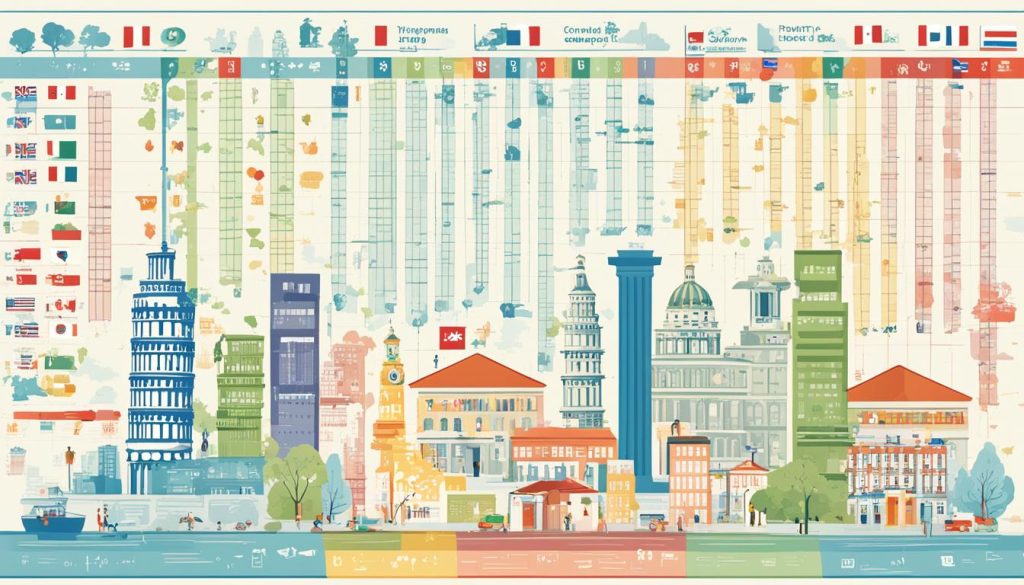Exploring the differences in the economy and quality of life across countries can be revealing. By comparing Italy, Japan, and the UK, we dig into living standards. We look at key economic indicators and their effects on people’s daily lives and happiness.
Introduction to Economic and Living Standards Comparison

Have you ever wondered why living costs vary around the world? Consider how economic changes affect daily life in places like Italy, Japan, and the United Kingdom. This section explores key economic indicators and looks at international living standards. We’ll see what makes a good life possible in these different locations.
We’ll examine important stats that show the financial and social situation in each country. We look at living costs, how much people earn, and their buying power. These elements help us understand the overall quality of life in each place.
If you’re thinking of moving abroad, or if you’re an investor watching the economy, this study will guide you. We’ll dive into data to see whether Italy, Japan, or the UK offers the best opportunities. Let’s find out which country is best for work and living well.
We’ll talk about what influences our day-to-day lives. This includes the cost of food and housing. And we’ll see if people can afford these things in the long run. So, let’s start our exploration into the global cost of living, looking at economic indicators and international living standards.
Cost of Living: Italy vs Japan vs United Kingdom
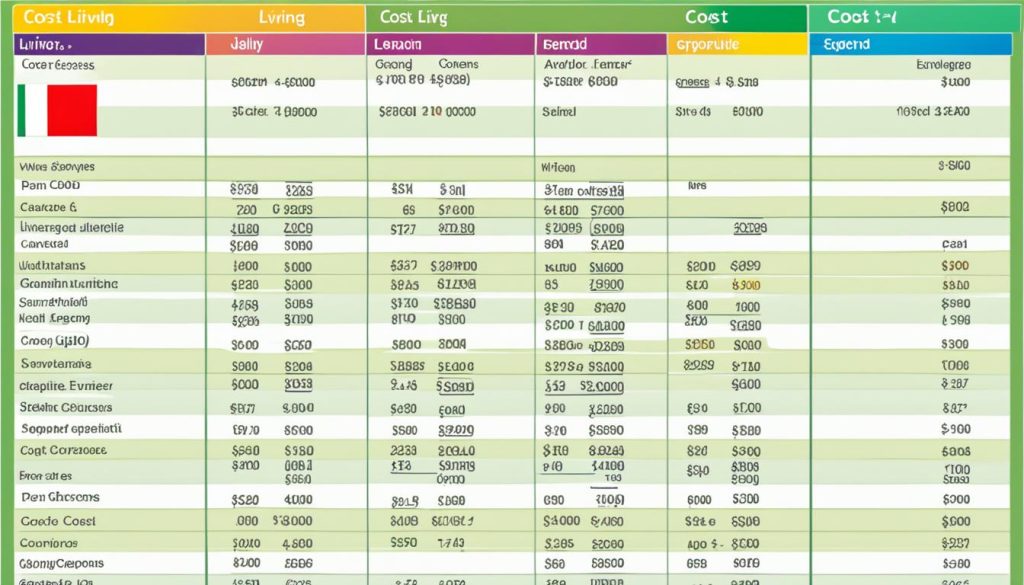
Comparing the cost of living between Italy, Japan, and the UK is complex. These countries have unique cultures and way of life. Yet, their economic status affects how affordable they are to live and work in.
Understanding the Cost of Living Index
The cost of living index is key for comparing the economic demands in different countries. It uses the US as a baseline with a score of 100. This helps us see that Italy scores 75.7, Japan is at 84.9, and the UK at 98.5. It shows that living costs in these countries are generally lower than in the US.
Comparative Analysis of Daily Expenses
Essential expenses in Italy, Japan, and the UK cover food, transport, and utilities. This helps people understand where their money goes further. It also shows the lifestyle they might afford. Costs like groceries and local services vary greatly between Italy, Japan, and the UK.
Housing and Rent Costs Across the Three Nations
Housing and rent often take up most of a person’s monthly expenses. The housing market in Italy, Japan, and the UK reflects their economic diversity. Each offers different opportunities and challenges for those looking to move abroad.
When we compare costs, understanding property and rental details is key. These factors are central to comparing living costs in these renowned countries.
Gross National Income Per Capita Assessment
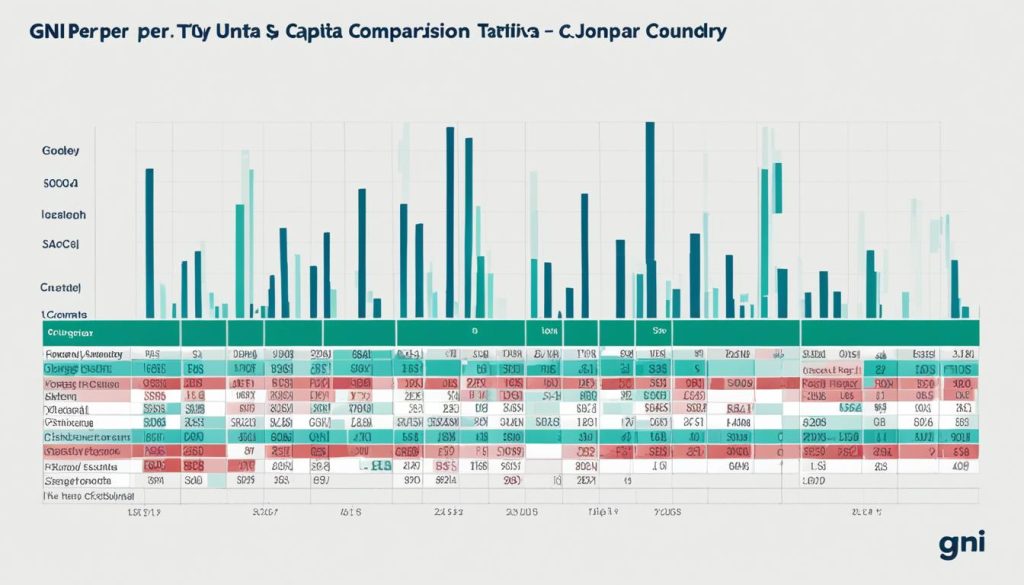
GNI per capita is a key indicator of a country’s wealth, comparing individual income to the national economy. It helps us understand not only the wealth of nations but the financial health of their citizens too. Their average earnings provide a clear window into economic status.
In this analysis, the UK stands out with an average monthly income of 4,103 USD. This highlights the strength of the UK’s economy. In contrast, Italy and Japan have lower averages of 3,183 USD and 3,537 USD respectively. These figures illustrate the economic differences between these countries.
- GNI per capita of the UK: 4,103 USD
- GNI per capita of Italy: 3,183 USD
- GNI per capita of Japan: 3,537 USD
Looking at these incomes is crucial for understanding economic fairness. This comparison shows how money is spread out in Italy, Japan, and the UK. It paints a picture of the world’s financial scene, mixing market trends and living costs.
Purchasing Power Parity: A Comparative Overview
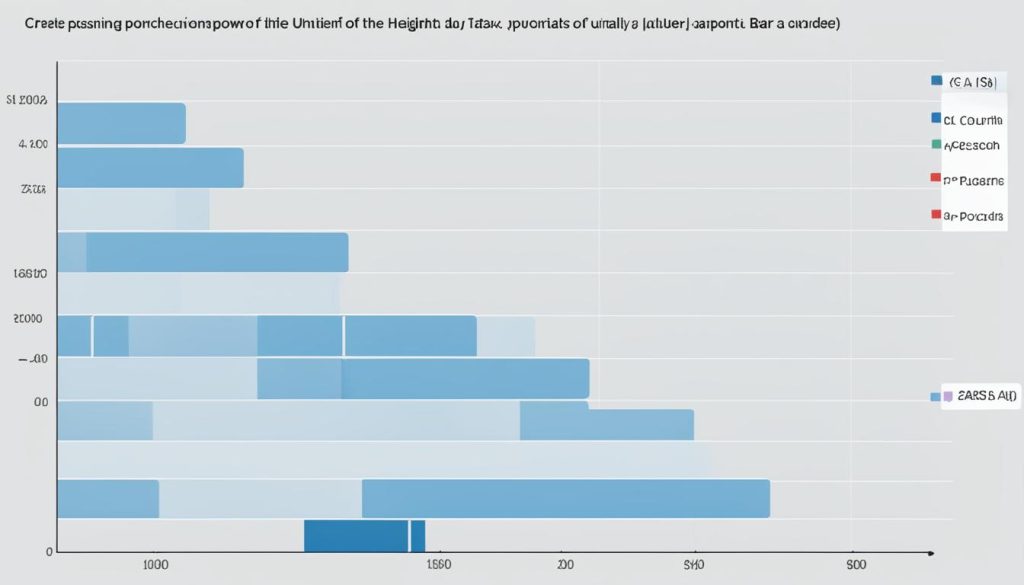
Purchasing power is a key indicator of a nation’s economic health. It shows how much people can buy with their money. This is crucial when comparing countries like Italy, Japan, and the United Kingdom. It helps us understand each country’s economic status and the well-being of its people.
The Role of Purchasing Power in Quality of Life
Purchasing power directly affects our quality of life. It shows the real value of money in different places. This means we can see if people are living well based on how much they can buy. It tells us about a country’s economic strength.
Purchasing Power Index Rankings
Looking at the global rankings tells us about the economies of Italy, Japan, and the UK. Compared to the USA, which has an index of 100, these countries have scores around 65. This shows their citizens have a similar quality of life, even if it’s not as high as in the USA.
- Italy – 65.7
- Japan – 65.1
- United Kingdom – 65.1
The number 6 in these indexes is meaningful. It shows the balance between wages, living costs, and prices. This mix affects how people perceive their lives and their economic well-being.
Assessing the Quality of Life in Italy, Japan, and the UK
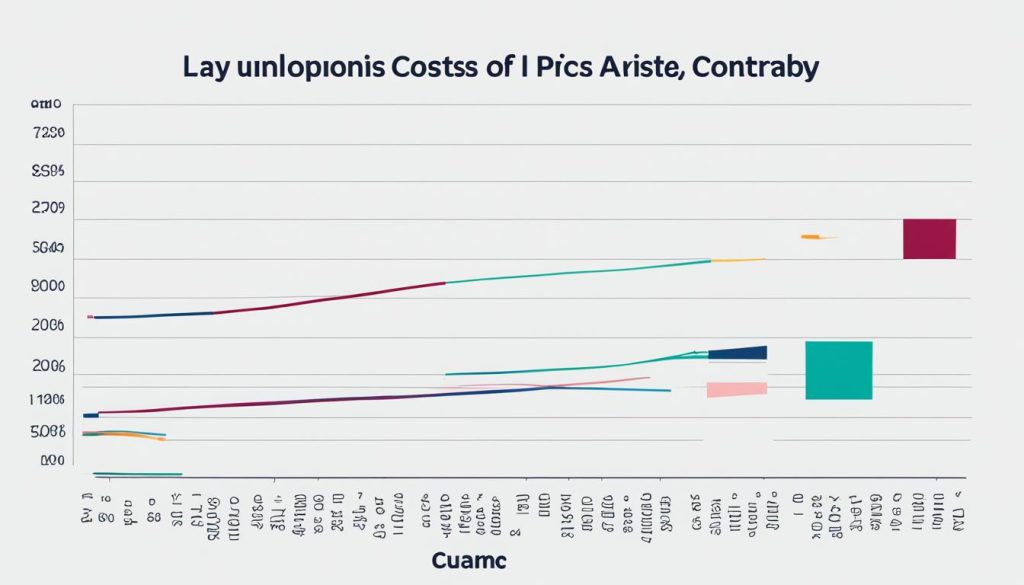
When we look at what makes life good in Italy, Japan, and the UK, certain things stand out. Healthcare, education, and safety are very important. They help shape how well people live, their happiness, and chances for growth.
Healthcare Services and Life Expectancy
The quality of a country’s healthcare shows how much it values its people’s health and long life. A key measure is how long people live, which shows if healthcare works well. Italy is known for its healthy food and great healthcare. Japan leads in medical technology and preventative care. The UK ensures everyone can get healthcare easily.
Education and Employment Opportunities
Looking at schools and job chances tells us about a country’s economy and growth options. Education sets the stage for good jobs and a better life. The UK has famous universities; Italy is praised for its cultural learning. Japan is ahead with its tech-driven teaching. Every country offers different benefits and faces different obstacles.
Personal Safety and Security Measures
Feeling safe is key for a good quality of life. Things like low crime, strong law enforcement, and stability matter a lot. The UK, Italy, and Japan each have their way to keep people safe.
The magic number 7 captures our deep look into these key areas. By thinking about healthcare, how long people live, and safety in these countries, we get a full picture. This shows the different ways of life in Italy, Japan, and the UK.
Analysing Political and Economic Stability

The foundation of a successful society rests on political stability and economic growth. These elements link to living standards, creating a safe space for people and businesses. This analysis will look at how stability and growth impact the daily lives of citizens.
Impact of Stability on Living Conditions
Political stability is more than just peaceful governance. It ensures people’s rights and freedoms are safeguarded. This makes it easier to introduce economic policies aimed at growth, enhancing living conditions. With political stability, the risks for investors are lower. This attracts investment, helping the economy grow.
Economic growth is key to a nation’s health. It signals more jobs, higher wages, and increased societal wealth. As the economy grows, people feel more financially secure. This boosts living standards. People then have more money, allowing them to access better education, healthcare, and housing.
There’s a strong link between political stability and economic growth. Stability means political changes won’t hamper economic development. Growth gives the government resources to improve infrastructure and social services. This boosts the quality of life. The cycle affects whether living standards rise or fall.
- Political stability sets the stage for reliable governance.
- Economic growth leads to more investments, jobs, and wealth.
- Better living standards come from these elements, showing in enhanced services and satisfaction.
To sum up, studying political and economic stability helps us predict a nation’s living conditions. Thus, these factors are crucial for assessing a country’s potential for living or investing.
Legal System and Civil Rights in Italy, Japan, and the UK
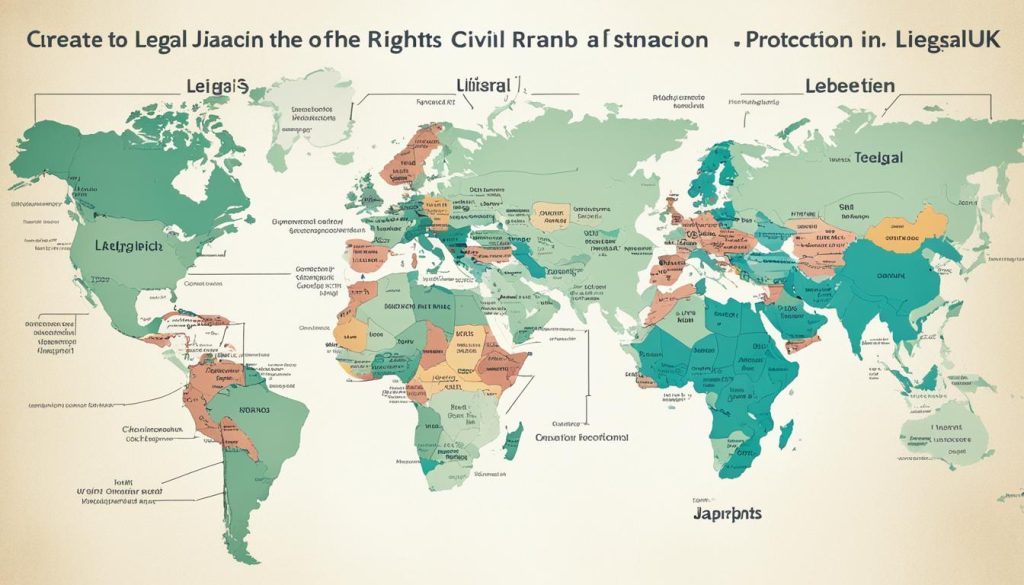
The foundation of any society relies on legal frameworks, civil liberties, and human rights. These elements show how committed countries are to democracy and the rule of law. Looking at Italy, Japan, and the United Kingdom, we see differences and similarities in protecting citizens’ rights.
In Italy, the post-war constitution supports civil liberties and human rights strongly. It focuses on personal freedom and fair trial rights. Japan, with its civil-law tradition, is updating its legal system to match global human rights standards. This shows Japan’s ongoing effort to protect individual freedoms.
The UK, despite not having a written constitution, has a vast set of laws for civil liberties. It includes public involvement in governance. The Human Rights Act 1998 shows the UK’s effort to apply European human rights laws locally. Balancing national security with individual freedoms shows the complexity and necessity of a solid legal framework.
- Scrutiny of national legal mechanisms in place to combat discrimination.
- Evaluation of the independence of the judiciary and its role in upholding the rule of law.
- Examination of the access and availability of legal resources to all segments of society.
Differences in culture, history, and politics affect how these countries apply legal frameworks. Yet, their goal is to protect and improve civil liberties and human rights. These legal protections are crucial for living quality, ensuring security, freedom, and fairness in Italy, Japan, and the UK.
Compare Economy and Quality of Living between Italy, Japan and United Kingdom

When we look at economics and lifestyle, Italy stands out. We notice how its economy and living conditions offer a unique view. Here, the balance between the cost of goods and life quality shows what living in Italy is like.
Italy’s Economy and Living Standards
Italy is known for its beautiful scenery. But, it’s also affordable to live the good life here. The cost of living in Italy is lower than in the US, making it appealing for those looking for culture and manageable expenses. Yet, Italians face challenges as their buying power is only about 65% of what people in the US have.
Japan’s Economic Landscape and Quality of Life
Japan stands as a model of strength and modern life. Its strong economy supports a high quality of life, blending the old with the new. Despite a lower living cost than the US, the Japanese lifestyle is efficient and innovative. This balance allows residents to enjoy a life full of culture, powered by a booming economy.
United Kingdom’s Economic Health and Living Conditions
The UK combines tradition with modern life, with a cost index close to the US. However, these numbers don’t fully capture the British lifestyle and purchasing capabilities. Brits enjoy a quality of life similar to those in Italy and Japan. The economic stage in the UK is complex, offering different opportunities and obstacles.
The number 10 is key when comparing these countries, urging a closer look at their lifestyles. From Italy’s delicious food that’s more appealing thanks to lower prices, to Japan’s orderly life that matches its economic health. The way these countries mix economy and living conditions is fascinating.
Exploring Health Services Across Italy, Japan, and the UK
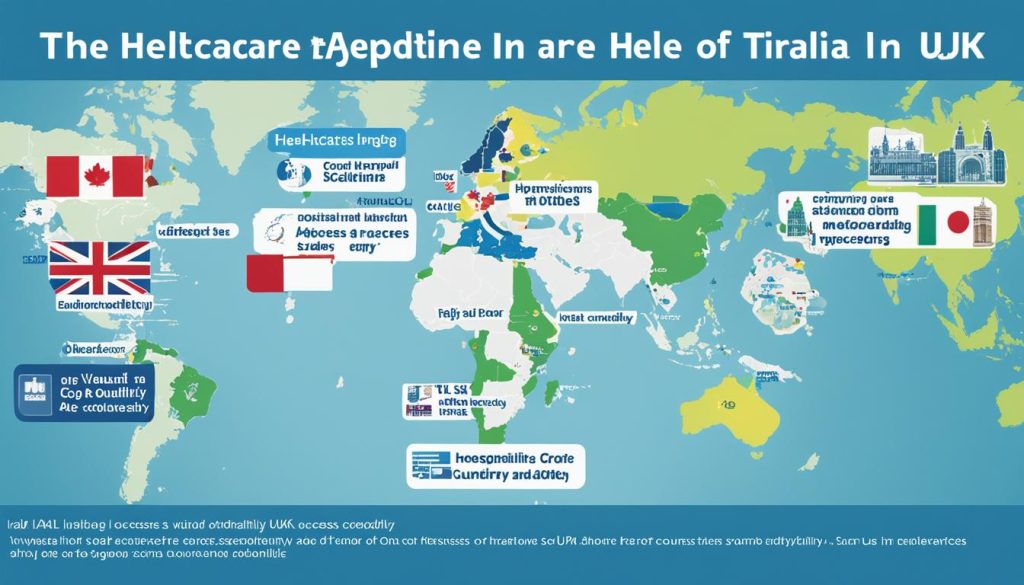
When comparing health services, Italy, Japan, and the UK stand out. Each country offers unique healthcare solutions, contributing to citizens’ wellbeing. Key factors like life expectancy and medical care access are keenly analysed. This helps compare and understand the healthcare systems.
In Italy, healthcare is available for all through a state-run insurance. It is known for its thorough care and extensive doctor networks. Public health efforts focus on preventing illnesses, despite some waits for procedures.
Japan ensures all citizens have health insurance, tied to jobs or local plans. They lead in life expectancy, thanks to preventive care and advanced technology. A mix of private and public healthcare maintains high service quality.
The UK’s National Health Service (NHS) provides free healthcare when needed. It aims for universal coverage but faces resource and budget issues. Yet, the commitment to top healthcare continues, with ongoing reforms.
- Italy’s healthcare system is praised for its preventive focus and broad coverage.
- Japan is leading in health technology, boosting superb health results.
- The UK’s NHS shows dedication to making health services available, despite money concerns.
The comparison highlights each system’s unique challenges but shows a shared goal of better health services. Understanding these healthcare systems helps those relocating and offers insights on improving healthcare globally.
The Influence of Safety on Quality of Life
The link between safety and quality of life is key to our wellbeing. It shows how feeling safe contributes to happiness and comfort. This is true in our everyday lives.
To understand safety, we look at crime rates and how well the police work. This tells us if people feel safe where they live. When people feel safe, their quality of life goes up. It makes a calm place for social and economic growth.
- Crime Rates: Crime levels affect how safe people feel.
- Police Services: A good police force makes people feel safe.
- Peace Indices: These numbers show a country’s stability.
Safety is key for a good society. It allows countries to be compared. This comparison shows the differences in people’s lives. Safety is crucial for happiness and satisfaction.
Safety also affects education, lifestyle, and investments. It shows its worth in life quality. A safe place means peace of mind. It also creates a strong community, safe from troubles.
- Education: Safety means better learning and success in school.
- Lifestyle Choices: People’s choices about living and socializing are influenced by safety.
- Economic Investments: How safe an area feels can attract or deter investments.
To sum it up, safety is very important for a good life. It stands out among other things that make life better. Safety is key for personal and community wellbeing.
The Climate Factor in Italy, Japan, and the UK
Climate plays a key role in our daily lives. It shapes how we live, from Italy’s sunny terraces to Japan’s blooming landscapes, and the UK’s greenery. These weather patterns are crucial for comfort and way of life. They show us the best conditions for both happiness and community wellness.
Climate’s Impact on Lifestyle and Wellbeing
The climate in each country greatly influences lifestyle and wellbeing. Here’s how:
- In Italy, the Mediterranean climate promotes an outdoor lifestyle. It brings people together and supports staying active, which is vital for Italians.
- Japan experiences varied seasons, from snowy winters to humid summers. This requires changes in lifestyle, like specially designed buildings and seasonal festivals. These enrich Japan’s cultural life.
- The UK’s unpredictable weather, often cool and wet, has led to a strong indoor culture. This focus on indoor comfort shows how weather can define a country’s identity.
It’s important to understand how climate affects our lives and wellbeing. Whether moving or just trying to live in harmony with nature, recognizing this link can enhance our quality of life.
Understanding the Costs and Income Balance
Analyzing how income compares to living costs tells us a lot about people’s financial health in Italy, Japan, and the UK. It’s crucial for those wanting to grasp economic resilience. They look at how well people can keep up their lifestyle despite economic changes.
Expenditures and Average Income Comparisons
Citizens face a constant struggle between what they earn and spend. In Italy, lower costs might mean more freedom financially. However, this can be limited by lower incomes. Japan has higher costs but also high incomes to match. The UK’s high costs are often balanced by high wages. This offers a unique look at people’s financial health.
Taxation and its Effect on Disposable Income
Looking at taxes helps us see the real financial situation beyond just earnings. In Italy, the tax system can greatly reduce what people have left to spend. Japan uses its tax policy to try and keep disposable income steady. This is closely linked to government economic plans. In the UK, taxes and social welfare carefully balance disposable income. This greatly affects people’s financial wellness.
- Italy: Progressive tax rates impact disposable income, influencing the balance between income and living costs.
- Japan: A rigorous fiscal policy that shapes residents’ financial health, focusing on maintaining a balance between government tax revenue and individual financial well-being.
- UK: Higher relative living costs matched with significant wages are juxtaposed against tax rates designed to support a complex social welfare system.
Thinking about how these factors work together, with the number 14 symbolizing careful progress, gives us better insight. We see how economic conditions rest on both income and what people spend in these different countries.
Assessing the Popularity of Italy, Japan, and the UK as Living Destinations
Italy, Japan, and the UK are popular places to live, thanks to their quality of life. These countries are known for their culture, economy, and lifestyle. This makes them more than just places to visit; they are potential homes for many.
Tourism and Migration Patterns
People look for places that offer a better life and more opportunities. Italy attracts with its history, food, and relaxed lifestyle. Japan is known for its technology, tradition, and safety. The UK is famous for cities like London and its cultural mix. This shows people want to do more than visit; they want to create lasting memories.
International Perception and Happiness Indicators
Happiness indexes help measure a country’s living appeal. Italy is seen as passionate; Japan as disciplined; the UK as sophisticated. Ranking 15th on the happiness index shows lifestyle satisfaction matters a lot.
Choosing where to live involves combining heart and practical needs. Italy, Japan, and the UK offer both in unique ways. They prove living appeal goes beyond numbers.
Conclusion
We’ve looked closely at how Italy, Japan, and the UK differ economically and in lifestyle. Each country shows unique living standards due to its economy and society. Italy offers a cheaper lifestyle than the USA, but its income levels tell a deeper story.
In Japan, people enjoy good living standards. They face a lower cost of living and have strong purchasing power. The UK’s cost of living is like the USA’s, but with less purchasing power. This mix attracts those who love British culture but are used to an American economic setting. These findings help anyone looking to move abroad understand what to expect.
Choosing where to live isn’t just about the numbers. It’s also about what you want in life, your career, and what you value. This guide helps you compare your options based on your goals and lifestyle. We hope it helps you find where you fit best in terms of economy and life quality.

